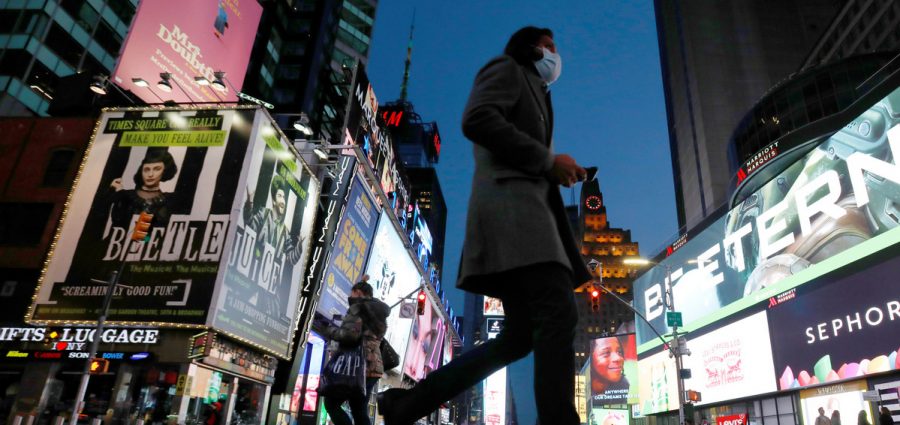Results of a breaking Long Island University Steven S. Hornstein Center for Policy, Polling and Analysis national poll reveal differences in political beliefs on what Americans think about a coronavirus vaccine and life in 2021.
Americans were asked if they would agree to be vaccinated if an FDA approved coronavirus vaccine was available right now. Of the respondents, 71% said yes, 19% said no, and 10% said they didn’t know or gave no answer. Male respondents said yes at a higher rate (79%) than female respondents (65%). Older Americans and those in the highest income brackets are most interested in the vaccine. 46% of Americans over the age of 60 and 51% of Americans making over $200,000 said they would get the vaccine right away. Overall, 36% of all respondents said they would get the vaccine as soon as it was available, 13% said within a few weeks, 8% said within one month, and 14% said after a month. 28% of Republicans, 23% of Independents/other, and 7% of Democrats said they would not get vaccinated. Americans were also asked when they believe a COVID-19 vaccine would be widely available for anyone who wants it in the United States. Of the respondents, 69% said by spring or summer 2021; 15% by fall 2021; 6% in 2022 or later; and 9% said they didn’t know or had no answer.
VACCINATED AMERICANS PLANS IN 2021 INDICATE POLITICAL DIFFERENCES
National poll results found that political beliefs make the biggest difference among other factors such as age, gender, region, and household income.
IF VACCINATED, WOULD YOU ATTEND FAMILY GATHERINGS IN 2021?
64% of Republicans said YES.
42% of Democrats and 41% of Independents/other said YES.
IF VACCINATED, WOULD YOU ATTEND IN-PERSON ENTERTAINMENT OR SPORTING EVENTS IN 2021?
60% of Republicans said YES.
38% of Democrats and 36% of Independents/other said YES.
IF VACCINATED, WOULD YOU USE AIR TRAVEL IN 2021?
61% of Republicans said YES.
49% of Democrats and 49% of Independents/other said YES.
CONCERN OVER CORONAVIRUS IS HIGHER AMONG DEMOCRATS THAN REPUBLICANS AND INDEPENDENTS
Respondents with the highest concern that they or someone in their family could become seriously ill from the coronavirus are Democrats (59%), followed by Independents/other (42%) and Republicans (37%). 54% of respondents over age 60 were also very concerned over family risks from the coronavirus.
CONFIDENCE LEVEL OF WEARING MASKS IN PUBLIC TO REDUCE SPREAD OF CORONAVIRUS IS HIGHER AMONG DEMOCRATS THAN REPUBLICANS AND INDEPENDENTS
Political differences exist in Americans’ belief that wearing a mask in public reduces the coronavirus’s spread. Respondents with the highest confidence level in wearing masks in public are Democrats (87%), followed by Independents/other (70%) and Republicans (62%).
WHAT ONE ISSUE MATTERS MOST FOR AMERICANS?
Republicans say the economy (45%), Democrats say Coronavirus (27%)
While various reasons were mentioned, the economy was the one issue that mattered most for Republicans (45%) and Independents (28%). The coronavirus was the one issue that mattered most for Democrats (27%).
7 OUT OF 10 TOP CORONAVIRUS HOTSPOTS IN U.S. ARE IN THE SOUTH AND MOUNTAIN REGIONS
The top 10 U.S. hot spots hit hardest by coronavirus outbreaks following the Long Island University National Poll results are primarily in the South and Mountain regions. As of December 22, 2020, seven out of the top 10 states in the U.S. with the highest average daily cases per 100,000 in the last seven days are in the South (Oklahoma, Tennessee, Texas, Alabama) and Mountain regions (Arizona, Nevada, Utah).
This Long Island University Steven S. Hornstein Center for Policy, Polling, and Analysis online poll was conducted through SurveyMonkey from December 20 – 21, 2020, among a national sample of 1,611 adults ages 18 and up. Respondents for this survey were selected from over 2.5 million people who take surveys on the SurveyMonkey platform each day. This week’s data have been weighted for age, race, sex, education, and geography using the Census Bureau’s American Community Survey to reflect the demographic composition of the United States. The modeled error estimate for this survey is plus or minus 2.5 percentage points.






